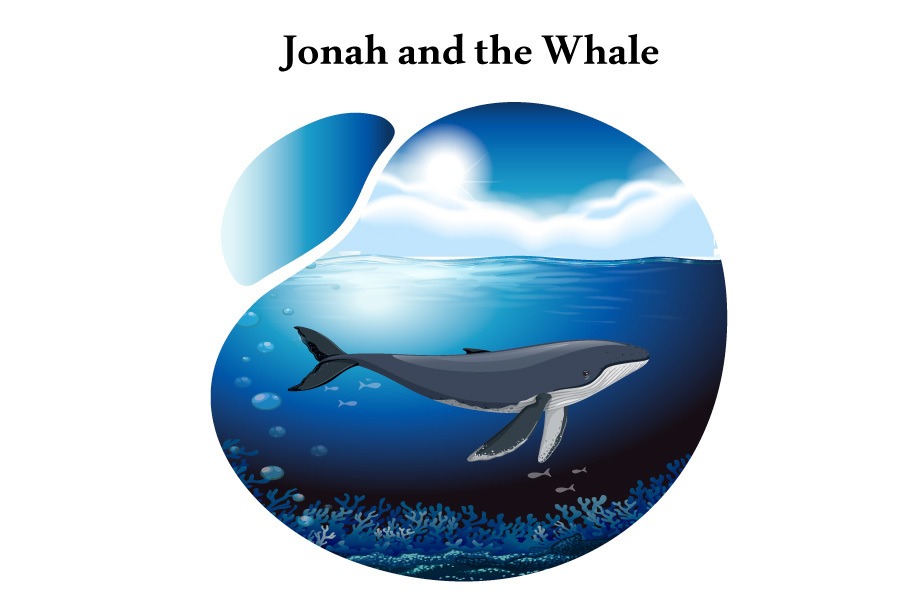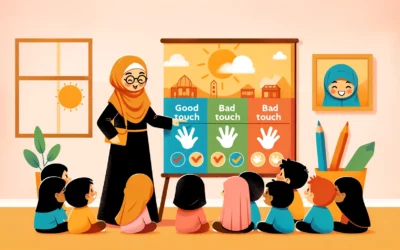The story of Jonah and the whale is one of the most intriguing and timeless narratives found in religious texts. It is a tale of a prophet’s mission, disobedience, divine intervention, and redemption. The story, often seen as a metaphorical account, has captivated the minds of believers and non-believers alike for centuries. In this article, we will delve into the narrative of Jonah and the Whale, exploring its symbolism, interpretations, scientific perspectives, cultural significance, and impact on art and literature. Moreover, we will discuss the theological and philosophical discussions that have emerged from this ancient tale.
The Story of Jonah and the Whale
In the Quran, Allah narrated the story of Jonah (Yunus in Arabic) and the whale in detail. Here is the story of Jonah and the whale as mentioned in the Quran:
In Surah As-Saffat, Allah narrates the story of Jonah:
وَإِنَّ يُونُسَ لَمِنَ ٱلْمُرْسَلِينَ
“And indeed, Jonah was one of the messengers.
إِذْ أَبَقَ إِلَى ٱلْفُلْكِ ٱلْمَشْحُونِ
[Mention] when he ran away to the laden ship.
فَسَاهَمَ فَكَانَ مِنَ ٱلْمُدْحَضِينَ
And he drew lots and was among the losers.
فَٱلْتَقَمَهُ ٱلْحُوتُ وَهُوَ مُلِيمٌ
Then the fish swallowed him while he was blameworthy.
فَلَوْلَآ أَنَّهُۥ كَانَ مِنَ ٱلْمُسَبِّحِينَ
And had he not been of those who exalt Allah,
لَلَبِثَ فِى بَطْنِهِۦٓ إِلَىٰ يَوْمِ يُبْعَثُونَ
he would have remained inside its belly until the Day they are resurrected.”
(AlQuran 37:139-145)
According to the Quranic account, Jonah was one of the righteous prophets sent by Allah to guide his people. When the people of his city refused to heed his warnings and persisted in their disobedience, Jonah felt disheartened and decided to leave his people and flee from his mission.
Jonah headed to the sea and boarded a loaded ship, and the sailors cast lots to determine who was responsible for the bad omen that had befallen them. The lot fell on Jonah, and he admitted to his wrongdoing and that he was fleeing from his mission. The sailors, aware of his piety and God’s judgment, hesitated to throw him overboard but eventually did so to appease God and save the ship and themselves from further calamity.
As soon as Jonah was thrown into the sea, Allah commanded a great fish (some translations refer to it as a whale) to swallow him. Inside the belly of the fish, Jonah realized his mistake and turned to Allah in sincere repentance, acknowledging his sins and seeking forgiveness.
Jonah said:
فَلَوْلَآ أَنَّهُۥ كَانَ مِنَ ٱلْمُسَبِّحِينَ
“And had he not been of those who exalt Allah,
لَلَبِثَ فِى بَطْنِهِۦٓ إِلَىٰ يَوْمِ يُبْعَثُونَ
he would have remained inside its belly until the Day they are resurrected.
فَنَبَذْنَٰهُ بِٱلْعَرَآءِ وَهُوَ سَقِيمٌ
But We threw him onto the open shore while he was ill.”
(AlQuran 143-145)
Allah, in His infinite mercy, accepted Jonah’s repentance and compassionately ordered the fish to release him on the open shore while he was still ill. This miraculous rescue and the realization of his mistakes strengthened Jonah’s faith and commitment to his prophetic mission.
In the following verses of Surah As-Saffat, it is mentioned how Allah’s message reached the people of Jonah’s city, and they repented after witnessing signs of divine punishment. When the people turned back to Allah, He forgave them and spared them from destruction.
The story of Jonah in the Quran emphasizes the importance of obedience to Allah and the acceptance of His will. It serves as a reminder that no one can escape Allah’s command, and sincere repentance and submission to His guidance can lead to forgiveness and mercy, even in the face of adversity.
8 Lessons from the Story of Jonah and the Whale
The story of Jonah and the whale, as found in the Quran, offers several valuable lessons that are relevant to our lives today:
-
Obedience to God
One of the central themes of the story is the importance of obedience to God’s commands. Jonah’s initial disobedience led him to face difficulties and trials. The story teaches us that obedience to God’s guidance and purpose for our lives is essential for finding peace and fulfillment.
-
Accepting Responsibilities:
Jonah tried to escape the responsibility of delivering God’s message to the people of Nineveh because he feared the consequences. However, we learn that running away from our responsibilities does not solve anything. Instead, facing challenges and fulfilling our duties, even when they seem difficult, is crucial for personal growth and the well-being of others.
-
Mercy and Forgiveness:
The Quran highlights God’s mercy and willingness to forgive those who sincerely repent. Despite Jonah’s disobedience, God granted him a second chance and saved him from the belly of the whale. This teaches us that no matter how far we may have strayed, God’s mercy is always available to those who seek forgiveness with a genuine heart.
-
Compassion for Others:
Jonah initially lacked compassion for the people of Nineveh, considering them unworthy of God’s mercy. However, the story shows that God’s love extends to all, and we should strive to have compassion and empathy for others, regardless of their background or beliefs.
-
The Power of Prayer:
When faced with dire circumstances, Jonah turned to God in prayer from the belly of the whale. This demonstrates the power of prayer in seeking guidance, comfort, and forgiveness during challenging times.
-
Overcoming Prejudices:
Jonah had prejudices against the people of Nineveh, but through his experiences, he learned that God’s compassion is not confined to a particular group. The story teaches us to be open-minded and refrain from judging others based on stereotypes.
-
Trusting in God’s Wisdom:
The story emphasizes the importance of trusting in God’s wisdom and divine plan, even when we may not understand the reasons behind certain events in our lives. God’s guidance and decisions are always based on what is best for us, even if it is not immediately apparent.
-
Repentance and Change:
Jonah’s story illustrates the power of genuine repentance and the potential for transformation in our lives. When we acknowledge our mistakes and seek forgiveness, we can experience positive change and growth.
The Story of Jonah and the Whale and the Modern World
In the modern world, the story of Jonah and the whale resonates with timeless lessons that hold relevance for our contemporary lives. The tale speaks to the challenges and responsibilities we face in a fast-paced, interconnected, and diverse society.
In our hectic lives, it is easy to lose sight of our purpose and responsibilities. The story of Jonah reminds us of the significance of embracing our roles and missions. Just like Jonah had a specific task from God, each individual has a unique purpose to contribute positively to society and the environment.
The whale in the story also symbolizes the majesty of nature. In the modern context of climate change and environmental degradation, the tale prompts us to reflect on our impact on the natural world and encourages environmental consciousness. Preserving marine life and protecting our planet becomes vital as we recognize our interdependence with the environment.
Jonah’s attempt to escape from his mission represents a form of escapism, a behavior that is not uncommon in today’s world. We often seek distractions or avoid confronting our responsibilities. The story serves as a reminder that such actions can lead to consequences not just for ourselves but also for those around us.
Compassion and empathy are essential virtues in a diverse and interconnected world. Jonah’s initial lack of compassion towards the people of Nineveh reflects the dangers of prejudices and biases that still exist in society today. Embracing compassion and understanding can help bridge gaps between individuals and communities, promoting inclusivity and harmony.
The story emphasizes God’s mercy and forgiveness. In a world often marked by conflicts and divisions, the act of forgiveness and seeking forgiveness can play a crucial role in healing wounds and promoting reconciliation.
In the hustle and bustle of modern life, taking time for prayer and spiritual reflection can offer solace and guidance. Jonah’s prayer from the belly of the whale demonstrates the power of turning to a higher power for comfort during difficult times.
The interconnectedness of all life forms is evident in the story’s consequences that affected not only Jonah but also the sailors on the ship and the natural world around him. This echoes the importance of environmental stewardship, where our actions have far-reaching impacts on the planet and its inhabitants.
Conclusion
In conclusion, the story of Jonah and the Whale serves as a timeless parable that addresses various aspects of human nature and the challenges we face in the modern world. By reflecting on its lessons, we can strive for personal growth, societal harmony, and a more compassionate and sustainable planet. Embracing our responsibilities, showing empathy, seeking forgiveness, and being mindful of our impact on the environment can guide us toward a more fulfilling and purposeful existence in the contemporary era.
May Allah, guide us on the path of righteousness and grant us the strength to embrace our responsibilities with sincerity and dedication. Help us cultivate compassion and empathy in our hearts, so we may understand and respect the diverse world around us. Forgive us for our shortcomings and mistakes, and teach us to seek forgiveness from those we have wronged. Grant us the wisdom to confront challenges with courage and perseverance, trusting in Your divine plan and mercy. Ameen!

















